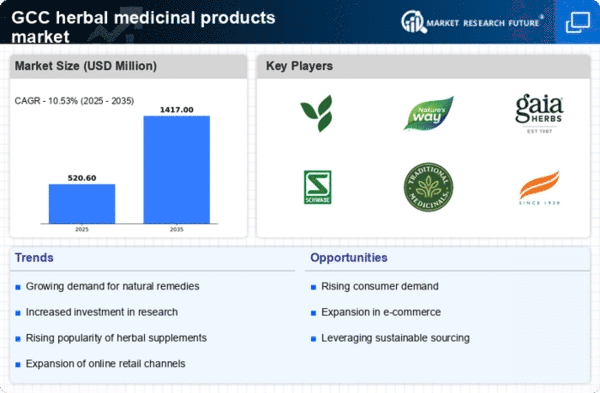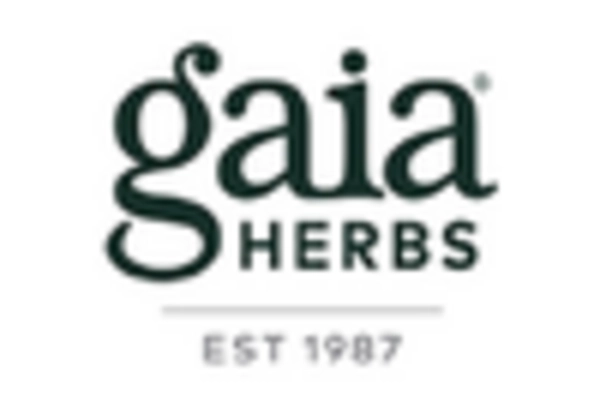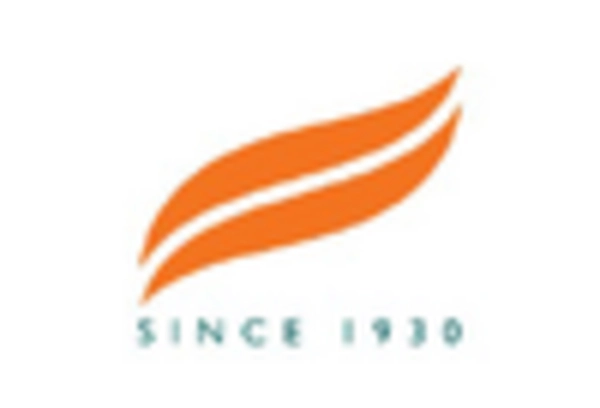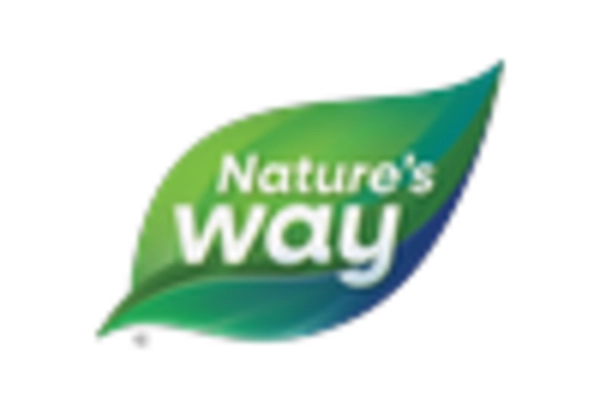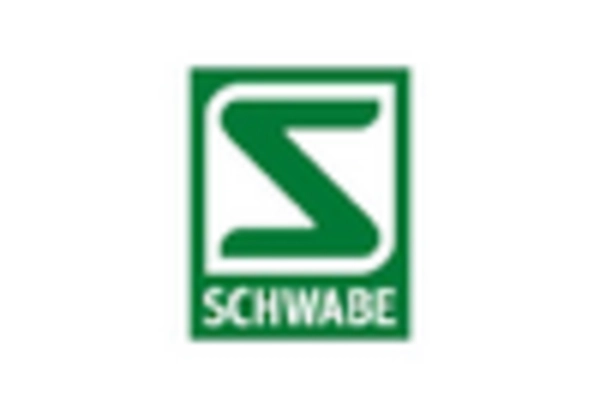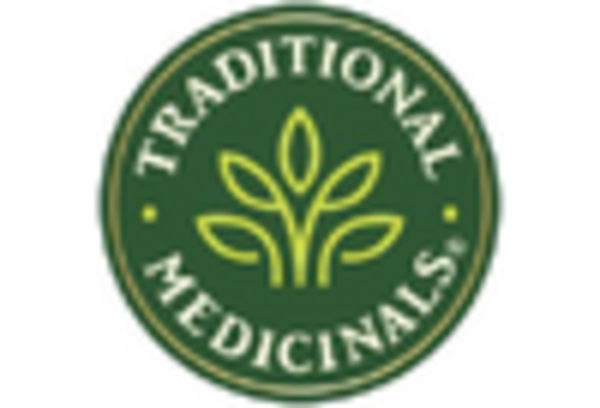E-commerce Expansion
The rise of e-commerce platforms is transforming the distribution landscape of the herbal medicinal-products market. In the GCC, online shopping has gained immense popularity, providing consumers with convenient access to a wide range of herbal products. This shift is particularly significant as it allows smaller brands to reach a broader audience without the need for extensive physical retail presence. Recent statistics indicate that online sales in the herbal sector have increased by over 30% in the past year alone. The convenience of online shopping, coupled with the ability to compare products and read reviews, enhances consumer confidence in purchasing herbal remedies. Consequently, the herbal medicinal-products market is poised for growth as e-commerce continues to reshape consumer behavior and preferences.
Increasing Health Consciousness
The herbal medicinal-products market is experiencing a notable surge in demand, driven by a growing awareness of health and wellness among consumers in the GCC. Individuals are increasingly seeking natural alternatives to synthetic medications, which has led to a rise in the consumption of herbal products. According to recent data, the market is projected to grow at a CAGR of approximately 8% over the next five years. This trend reflects a shift towards preventive healthcare, where consumers prioritize holistic approaches to well-being. The increasing prevalence of lifestyle-related diseases further fuels this demand, as individuals look for effective, natural remedies to enhance their health. As a result, the herbal medicinal-products market is likely to expand significantly, catering to the evolving preferences of health-conscious consumers.
Innovations in Product Development
Innovation is a key driver in the herbal medicinal-products market, as companies strive to meet the evolving needs of consumers. The introduction of new formulations, delivery methods, and product types is reshaping the market landscape. For instance, the development of herbal teas, capsules, and topical applications has expanded the range of options available to consumers. Additionally, advancements in extraction and processing technologies enhance the efficacy and safety of herbal products. Recent market analysis indicates that innovative products are gaining traction, with a projected increase in sales by approximately 15% over the next few years. This focus on innovation not only attracts new customers but also retains existing ones, ensuring the herbal medicinal-products market remains competitive and responsive to consumer demands.
Cultural Acceptance of Herbal Remedies
Cultural factors play a pivotal role in shaping the herbal medicinal-products market in the GCC. The region has a rich history of utilizing herbal remedies, deeply rooted in traditional practices. This cultural acceptance fosters a favorable environment for the growth of the herbal medicinal-products market. Many consumers view these products as not only effective but also as a part of their heritage. The integration of traditional knowledge with modern formulations enhances the appeal of herbal products. Furthermore, the increasing interest in natural and organic products aligns with cultural values, promoting the use of herbal remedies. As a result, the herbal medicinal-products market is likely to benefit from this cultural inclination, leading to sustained growth and innovation in product offerings.
Rising Interest in Preventive Healthcare
The herbal medicinal-products market is benefiting from a growing trend towards preventive healthcare among consumers in the GCC. As individuals become more proactive about their health, there is an increasing demand for products that support overall well-being and disease prevention. This shift is reflected in the rising sales of herbal supplements and remedies that are perceived to enhance immunity and promote longevity. Market analysts suggest that this trend could lead to a compound annual growth rate (CAGR) of around 7% in the herbal sector over the next few years. The emphasis on preventive measures aligns with the broader healthcare landscape, where consumers are seeking alternatives to conventional treatments. Thus, the herbal medicinal-products market is likely to thrive as it caters to this growing interest in holistic health solutions.


